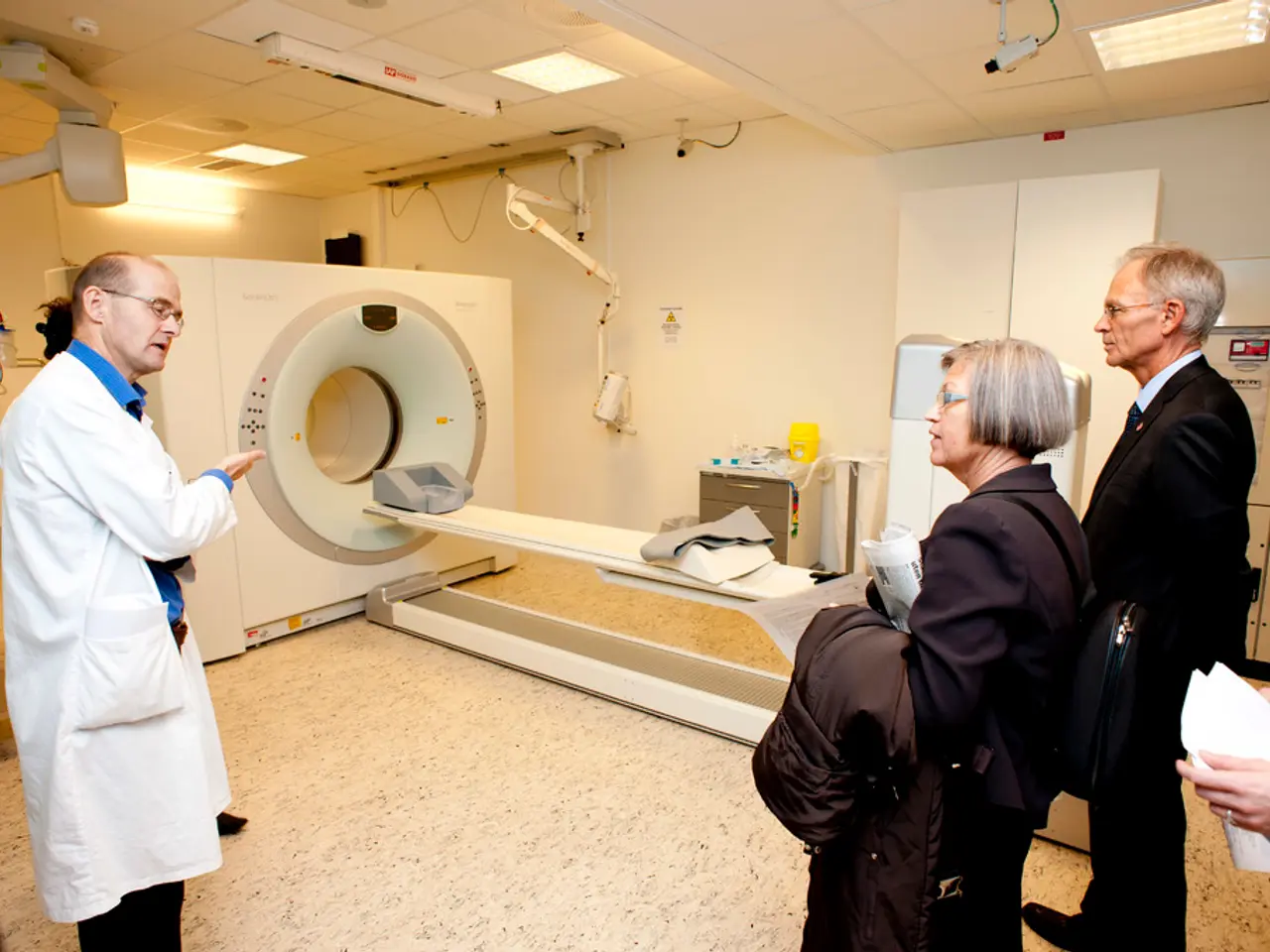Prostate Examination Procedures and Eligibility: An Explanation
In the realm of men's health, prostate cancer is a significant concern. This article aims to shed light on the key elements of prostate cancer screening, including the Prostate Health Index (PHI) and 4Kscore test, digital rectal exams (DRE), prostate-specific antigen (PSA) tests, and prostate biopsies.
Prostate cancer begins in the prostate gland, a small organ that produces fluid for semen. The prostate gland can develop nodules, which may be indicative of prostate cancer or other prostate-related conditions.
A prostate exam involves a DRE and a PSA test. The DRE is a simple and quick procedure where a doctor examines the prostate gland through the rectum to check for any lumps, hard areas, or irregularities. While the DRE can provide valuable information, it has limited accuracy, and abnormal findings do not necessarily indicate cancer.
The PSA test, on the other hand, measures the amount of PSA produced by the prostate gland. Elevated PSA levels can indicate possible prostate cancer, but they are not exclusively cancer-specific. Other conditions, such as prostatitis or an enlarged prostate, can also raise PSA levels.
When deciding whether to recommend a prostate biopsy, doctors primarily consider a combination of DRE findings and PSA blood test results, along with other factors such as patient age, family history, and imaging results. If a man has an elevated PSA level and/or an abnormal DRE, especially when combined with suspicious findings on imaging such as multiparametric MRI (mpMRI), a biopsy may be recommended.
The decision is nuanced and individualized, aiming to balance early cancer detection with avoiding unnecessary invasive biopsies. Current clinical practice often involves using mpMRI after PSA and/or DRE abnormalities are found. mpMRI can better identify suspicious areas in the prostate and help determine whether a biopsy is necessary, improving biopsy targeting and reducing unnecessary procedures.
It's important to note that 1 in 8 males will receive a prostate cancer diagnosis during their lifetime, according to the American Cancer Society (ACS). In 2021, the ACS expects 174,650 new prostate cancer diagnoses in the U.S. and 34,130 deaths from prostate cancer.
The U.S. Preventive Services Task Force recommends that the decision to undergo prostate cancer screening from ages 55-69 should be up to the individual. Other factors that can raise PSA levels include age, recent ejaculation, medical procedures, testosterone supplementation, an enlarged prostate, prostatitis, and obesity.
In summary, understanding the role of PSA tests, DREs, and biopsies in prostate cancer screening is crucial for men's health. By staying informed and discussing any concerns with a healthcare professional, men can make informed decisions about their health and wellbeing.
- Men's health involves addressing conditions such as prostate cancer, which originates in the prostate gland.
- Prostate exams, essential in men's health checks, incorporate digital rectal exams (DRE) and prostate-specific antigen (PSA) tests.
- The Prostate Health Index (PHI) and 4Kscore test could also be part of prostate cancer screening, helping predict the likelihood of cancer.
- A high PSA level, while not exclusively indicative of cancer, may require further investigation such as prostate biopsies.
- Bipolar, depression, and Alzheimer's are important mental health-related conditions to consider in the broader context of men's health and wellness.
- Health science advances have led to better understanding and screening for medical conditions like HIV, asthma, and cancer.
- mens,ad, mm, or any specific acronym related to men's health were not explicitly mentioned in the context provided.
- While prostate cancer is a significant concern, it's important to remember that other health issues such as those related to mental health are equally important components of comprehensive men's health.
- As individuals approach the recommended age for prostate cancer screening, staying informed about various tests like PSA, DRE, mpMRI, and the role they play in screening can empower men to make informed health decisions and maintain their health and wellness.




